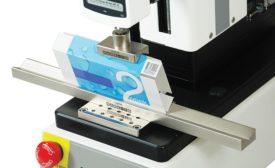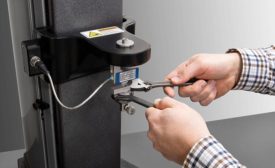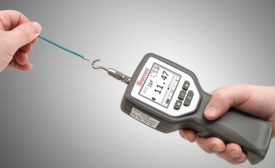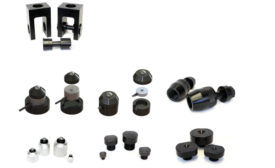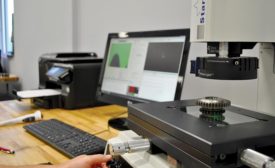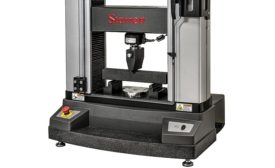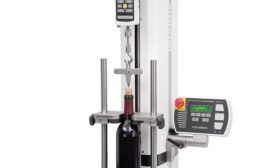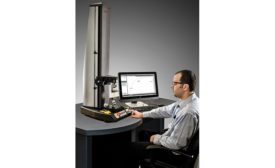Home » force measurement
Articles Tagged with ''force measurement''
Force measurement is an important characteristic in meeting the requirements of a quality product.
Read More
Understanding the Role of Load Cells in Force Measurement
This will help you choose the most appropriate load cell for your application.
April 1, 2020
NDT in Aerospace
Force Gage Technology
New force gage technology offers a faster, easier alternative to conventional computer and software-based force measurement.
July 8, 2019
Web Exclusive
Recommended Compression and Tension Adapters for Force Calibration
July 3, 2019
Can You Save Time and Money by Automating your Quality Processes?
Whether you are looking at industrial robots or cobots, automation can be a great solution.
March 1, 2019
How Proper Specification of Load Cell Sensors Can Improve Force Measurement
Accuracy is only one of many characteristics that should be examined before selecting a sensor for an application.
November 8, 2018
Tensile Testing Principles: Fundamentals, Methods and Challenges
Tensile testing can determine the component’s suitability for use and its performance over time.
August 1, 2018
Stay in the know with Quality’s comprehensive coverage of
the manufacturing and metrology industries.
eNewsletter | Website | eMagazine
JOIN TODAY!Copyright ©2024. All Rights Reserved BNP Media.
Design, CMS, Hosting & Web Development :: ePublishing
